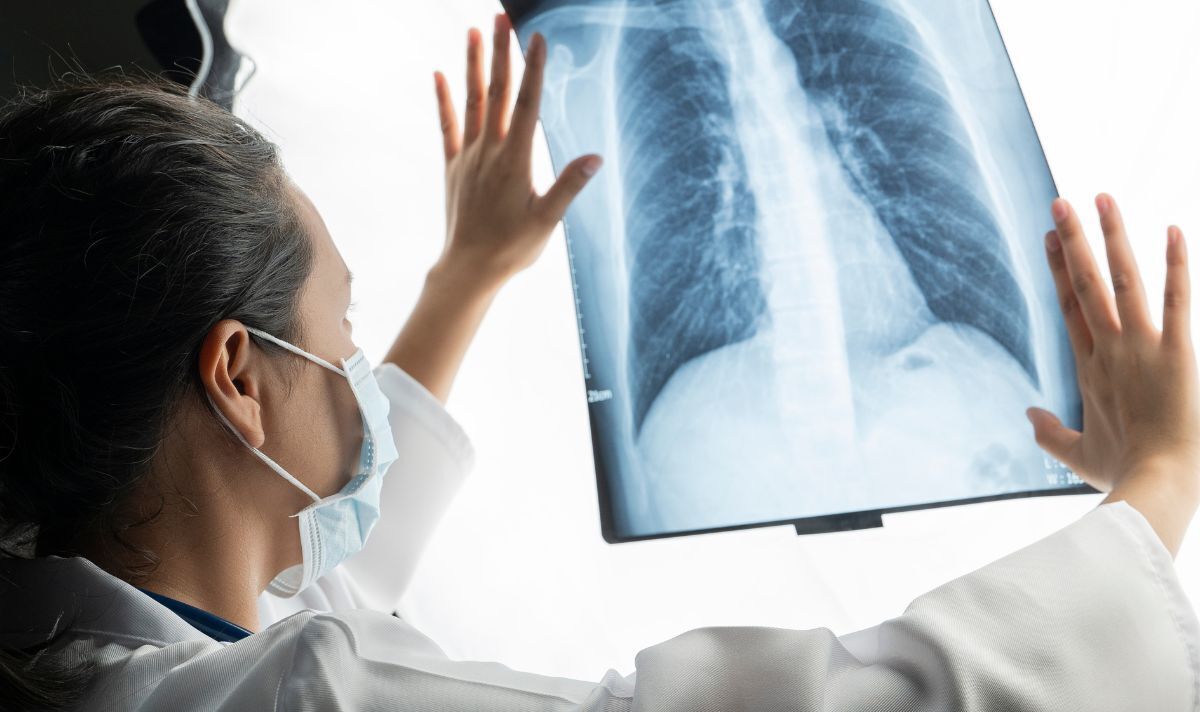Dame Esther Rantzen ‘optimistic’ following lung cancer diagnosis
The chances of surviving lung cancer for at least five years have more than doubled in the last two decades, figures show.
In 2005, only nine percent of people who received a diagnosis were expected to be alive five years. Now, NHS analysis released ahead of the health service’s 75th birthday on Wednesday shows the figure has risen to a fifth.
But lung cancer is still the UK’s biggest cancer killer, claiming around 35,000 lives each year.
Overall, cancer survival is at an all-time high with 56 per cent of sufferers surviving beyond five years, up from 48 per cent two decades ago.
Writing in the Daily Express, NHS England’s national clinical director for cancer pays tribute to innovations that have driven progress.
Professor Peter Johnson said: “Thanks to advances in treatment and care alongside NHS awareness campaigns, survival rates in this country are now at an all-time high.
“The number of people surviving lung cancer for five years or more has doubled in the last two decades, with a fifth alive after five years. This is really encouraging progress, but there is still so much to do to save more lives – and we will not stop here.
“As the NHS turns 75 this week, we will continue to find new and better ways to make it as easy as possible for people most at risk to get life-saving tests as part of their daily routines.”
Royal Preston Hospital in Lancashire has become the first UK hospital – and only the third centre in Europe – to benefit from a cutting-edge tool for lung cancer diagnosis.
The Lung Vision Navigation System uses a thin tube-like instrument with a light and a lens for viewing, called a bronchoscope, to examine inside a patient’s lungs in real time.
By using the system, doctors can penetrate deeper and reach areas from which they were previously unable to take biopsy samples.
The hospital’s consultant respiratory physician Professor Mohammed Munavvar said diagnosing lung cancer early was vital to improve survival chances.
He explained: “Unfortunately, 75 percent of UK patients already have advanced disease at the time of diagnosis.
“This is partly because of the difficulties involved in diagnosing the disease with patients often needing to undergo multiple biopsies due to the limited diagnostic yield ranges of existing equipment.”
Repeated biopsies create stress for patients and can double the time to diagnosis, Prof Munavvar said. He added: “This is why we are so excited about now having Lung Vision.
“It is one of the safest, most sophisticated, sensitive software, which allows us to see deep inside and reach the most awkward, tricky areas of the lungs to avoid multiple diagnostic tests, including more invasive procedures and the risk of complications they come with.
“It will make a massive difference in terms of speeding up the diagnostic process and improving the chance of diagnosing lung cancer at an earlier stage to enable us to plan targeted personalised treatment.”
Don’t miss…
Sarah Ferguson is ‘recuperating’ inside £30million home with Princess Eugenie[LATEST]
Four symptoms that ‘won’t go away’ that could signal cancer[LATEST]
Woman shares her initial symptoms of ‘incurable’ blood cancer myeloma[LATEST]
We use your sign-up to provide content in ways you’ve consented to and to improve our understanding of you. This may include adverts from us and 3rd parties based on our understanding. You can unsubscribe at any time. More info
The Lung Vision system costs £237,500 and was funded by a local charity, the Rosemere Cancer Foundation.
The NHS has also rolled out targeted lung health checks delivered by roving mobile clinics for people at highest risk, including smokers.
More than 300,000 people have benefitted from tests delivered in trucks since the scheme’s 2018 launch, leading to over 1,750 cancer diagnoses.
Three quarters of those cancers were caught at stage one or two, when treatment is more likely to be successful.
Cancer Research UK’s chief executive, Michelle Mitchell, said: years of scientific discovery had “given us a much better understanding of the biology of lung cancer which lies behind improvements in detection, diagnosis and treatment”.
She added: “Lung cancer survival has improved in England over many years, but it still claims far too many lives with survival lagging behind comparable countries.
“The recent decision to roll out targeted lung screening across England to help diagnose people at an earlier stage is really positive – though its success will rely on investment in staff and equipment by the UK Government. But there are big challenges ahead.”
Cancer Research UK is projecting that the number of annual lung cancer cases will increase by around a third by 2040.
Ms Mitchell added: “To ensure our health service is fit for the next 75 years, and that all patients get the world-leading cancer outcomes they deserve, we need to transform cancer prevention, diagnosis and treatment.
“Given smoking is still the biggest cause of lung cancer, this must also include plans from the UK Government to make smoking obsolete.”
Source: Read Full Article



